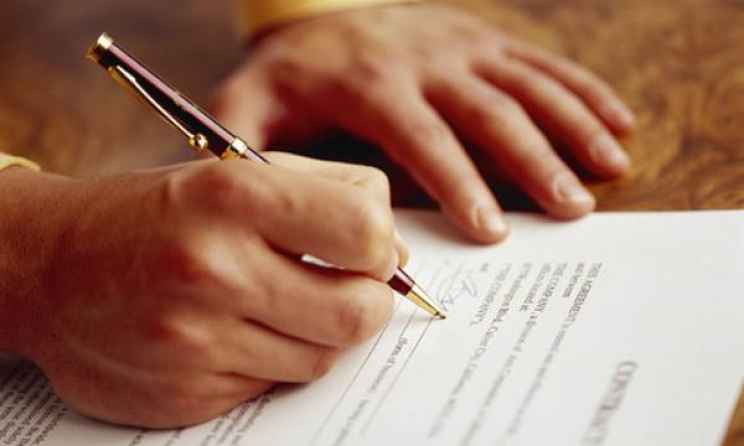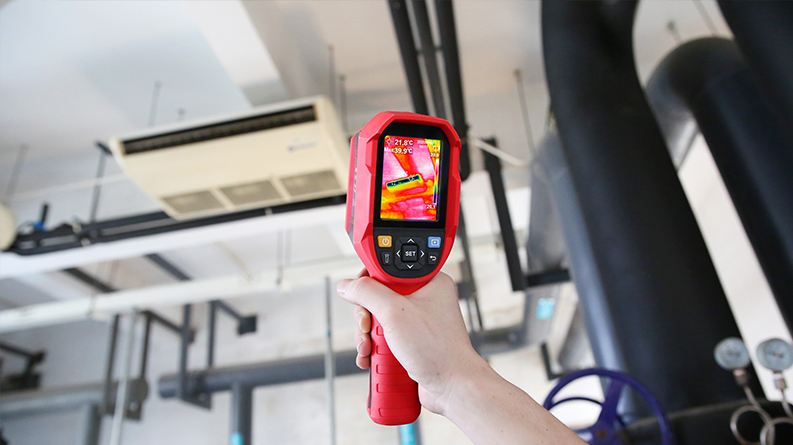Buying a Property
Step 4: Making an Offer
Once you've found the right property you'll need to make an offer. When making an offer to purchase a property, it is important to be aware of the following:
- The agent will submit all offers to the seller
- The property remains on the market while the vendor considers all offers. Just because your offer is the first one submitted, does not necessarily mean that it will be accepted.
- Your offer may include a date by which it will lapse if not accepted
- An offer may be made subject to a finance clause i.e. bank approval, sale of an existing property or another consideration such as a builder's inspection
- You can make your offer conditional on certain items (such as a dishwasher) being included or excluded from the contract. Any special conditions such as these must be written into the contract.
Once you have determined what your initial offer will be it is best to put it in writing. An offer is not legally binding on both parties until the buyer and seller have signed a contract.
Contract of Sale
The contract is a very important document that will outline all the conditions of the sale.
Once you have finalized negotiations, a contract will be drawn up to formalize your offer on the chose property. Real estate agents and developers in Queensland often prepare their own contracts. It is your responsibility to make sure any special conditions you agreed on with the agent appear in the contract.
Before you sign a contract, take a copy away and discuss it with your solicitor (who should be independent of the agent and seller). Independent legal advice is especially important if your offer is dependent on conditions such as finance, or the sale of another property. Once you sign the contract and it is signed by the seller, it becomes binding.
The Real Estate Institute of Queensland (REIQ), in association with the Queensland Law Society (QLS), has produced a standard contract used by many Queensland agents. Any contract provided must include the PAMD Form 30c Warning Statement. The Warning Statement advises you to:

- Seek independent legal advice;
- Find a registered and independent property valuer;
- Arrange a search for the property’s sale history from the Department of Natural Resources and Water; and
- Check that you fully understand your rights when buying a property
Choosing a Solicitor
Whether you are buying or selling property, it is important to get independent legal advice. Using a solicitor will give you added protection and peace-of-mind because they must carry professional indemnity insurance. This protects you if something goes wrong because of action taken, or not taken, by your solicitor.
When choosing a solicitor, shop around and compare different solicitors’ experience, services and costs. It is always in your best interest to employ a solicitor who is experienced in the area of law you require. If using a solicitor to help you buy or sell your home, it is best to choose a legal firm recommended for its conveyancing skills. When looking for a solicitor, consider solicitors you or your family and friends have used in the past, preferably to help you buy or sell a home. It’s also important to ensure your solicitor is independent of any other party you are dealing with in the property transaction.
Get a detailed quote for the legal work you want done before you appoint a solicitor. For some routine legal work, such as conveyancing, solicitors may provide a set price. The costs for conveyancing work can vary widely, so it is best to shop around. Contact the Queensland Law Society (www.qls.com.au ) on (07) 3842 5842 for further details about how to find a qualified solicitor.
Cooling off period
Standard sales contracts for residential property have a cooling-off period of five business days so you can evaluate your purchase. If you’re not totally happy, you can cancel the contract within the cooling-off period. However, residential auction sales contracts have no cooling-off period.
For standard sales contracts, the five-day cooling-off period starts the day you receive a copy of the contract signed by both you (the buyer) and seller, providing that day is a business day. If the day you receive the contract is not a business day (i.e. Sunday or a public holiday) then the cooling-off period will commence on the next business day.
The cooling-off period ends at 5pm on the final day of the cooling-off period, for example, if you receive a signed and dated contract at 6pm on a Sunday, the cooling-off period would end at 5pm on Friday, providing there are no public holidays on or between the start and end of the cooling-off period, and the business operates until 5pm on each of theses days. If you want to cancel the contract during the cooling-off period, you must give written notice to the property developer or agent and deliver it before the period ends. You will be refunded your deposit less an amount up to 0.25 per cent of the purchase price of the property (i.e. for a $360,000 home, you will lose $900). This amount should be specified on the contract.
Paying the Deposit
Once you have made an offer, or made the winning bid at auction, a Contract of Sale document will be drawn up. This document is not a contract until both parties have signed.
You may be requested to pay a partial deposit to the selling agent at this time. If a deposit is paid, you will make payment to the agent’s trust account and receive a receipt for this.
You may choose to pay a deposit to show the seller that you are serious about purchasing the property, or you may delay paying a deposit until the seller has signed the contract.
You will pay the remainder of the deposit when contracts are drawn up and exchanged (usually within 14 days of your offer being accepted). This remaining deposit will be paid to the seller’s legal representatives/conveyancer’s trust account and you will receive a receipt for this.
You can pay your deposit in cash, or use deposit bonds as a substitute between signing the contract and settlement of the property. Deposit bonds can be organized by your real estate agent, finance company or bank. These bonds are designed to keep your savings in the bank, and earning interest for the maximum time. The seller will decide whether to accept the bond, or insist on a cash deposit. If a deposit bond is used, you are required to pay the full purchase price including the deposit on settlement day. Failure to pay out the bond will allow the seller to keep your deposit.
Paying a deposit does not mean that the property is yours. The property will only be taken off the market when both parties accept and sign the contract. Paying a deposit at the time the offer is make shows the seller that your offer is serious. The seller of agent can take as many preliminary deposits as they like for the one property, and are free to negotiate with you and other purchasers for a higher life.
Some sellers may insist that offers are only made in writing. If your offer is not accepted, your deposit must be fully refunded.
Home and Contents Insurance
Make sure you are clear about exactly when you are responsible for the insurance of your property. Even though the property may be covered by the seller’s insurance up until the date of settlement, it is recommended that the buyer take out home/building insurance effective from the date of signing the contract. You should also consider taking out contents insurance to cover fixtures not covered by home/building insurance, such as curtains and fittings.
If you have a mortgage your lender will expect you to have home/building insurance. This is important even if you have paid off your home because it covers damage or loss to the building and its fixtures. If you buy into a community titles scheme (e.g. townhouse, villa or home unit), the body corporate will generally have to take out insurance to cover common property but you are responsible for insuring your contents.
Building and Pest Inspections
Your chosen property may appear to suit your needs, but serious problems and costs may be hiding in the woodwork – literally! A building and pest inspection is one of the most important service home buyers can use.
Standard contract are subject to building and pest inspections, however

undertaking these inspections before negotiations commence helps you know exactly what condition the property is in and what needs to be spent on it. This can increase your bargaining power. Note: if buying at auction, always undertake inspections before auction day.
If planning to undertake building and pest inspections after you have made an offer, make sure you can terminate the contract before settlement day if the property receives an unsatisfactory building and pest inspection report. Think about what you will and won’t accept prior to making the offer and arrange with the seller for access to the property.
Combines building and pest inspections can cost between $400 and $600 for a standard three bedroom home. Swimming pool constructions can be carried out separately by a licensed inspector for costs between $170 and $350. Find out what the different inspections will include. Also make sure you understand what items will not be covered in the inspection report.
Ensure you building inspection is conducted be an independent Building Services Authority licensed certifier. Buyers should also investigate appropriate statutory warranties for new building and procedures for making claims within the warranty period


